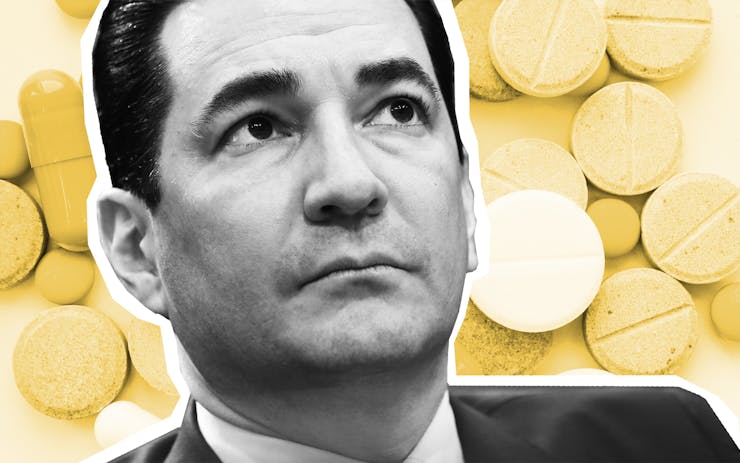Scott Gottlieb, commissioner of the US Food and Drug Administration (FDA), resigned on Tuesday, citing a desire to spend more time with his family. He is expected to leave the agency in about a month.
Gottlieb's presence mattered because he made CBD one of his high-priority issues.
In the cannabis industry, Gottlieb’s departure raises immediate questions about the status of cannabidiol (CBD), the popular, nonintoxicating cannabis component. Congress’ passage of the farm bill in late 2018 seemed to open the door to nationwide CBD legality. But the DEA still considers nonprescribed CBD to be an illegal Schedule I drug, and many legal scholars caution against assuming that CBD is legal just because it’s available in a growing number of mainstream stores.
Gottlieb’s presence mattered because he has made CBD, along with nicotine vaping and opioid abuse, one of his high-priority issues. Just recently, Gottlieb told a congressional committee that the FDA was “deeply focused” on finding an appropriate way to handle CBD.
One Leader Makes a Difference
Gottlieb also said he’d like to work with Congress to find a legislative solution that would allow CBD to be sold in conventional food and dietary supplement stores. The FDA could consider CBD in an agency rulemaking process, Gottlieb said, but that process could be subject to long delays and would not be, in his words, “straightforward.”
“There’s not a good proxy for us doing this through regulation, and if we get comments back and find that this is sufficiently complicated for the agency, we will come back and have a discussion with Congress about how we might be able to work together on this,” Gottlieb said in testimony Feb. 27 before the House Committee on Appropriations. (That testimony was covered by reporter Josh Long at the Natural Products Insider.)
Gottlieb also addressed the CBD question last month at a conference hosted by the National Association of State Departments of Agriculture. Marijuana Moment’s Kyle Jaeger was there to capture this quote about the FDA seeking “possible alternative approaches” to regulating CBD:
“We’re planning to seek broad public input on this pathway, including information on the science and safety behind CBD. But we know that this process could take time,” Gottlieb said. “So we’re also interested in hearing from stakeholders and talking to Congress on possible alternative approaches to make sure that we have an appropriately efficient and predictable regulatory framework for regulating CBD products.”
Actually Competent
Some public health experts and activists took the news of Gottlieb’s departure hard, in part because the former physician and venture capitalist has been considered one of the most competent Trump appointees.
The “NOOOOOO!” heard ’round the public health world: https://t.co/K0qTCL3GCj. Number of excellent administrators in the Trump Administration declines 100%.
— Michelle Mello (@MichelleM_Mello) March 5, 2019
Gottlieb was by far the most competent and effective Trump appointee. His resignation is terrible news for public health https://t.co/TvvWaftMaL
— Leo Beletsky (@LeoBeletsky) March 5, 2019
NPR described Gottlieb as “widely viewed as an effective advocate of public health,” and some praised his team’s work cutting tobacco and opioid deaths, lowering teen nicotine use, and reducing the cost of generic drugs.
Others saw the commissioner as a public official who remained too cozy with commercial interests. “We are not sorry to see him go now,” Public Citizen’s Michael Carome told BuzzFeed News, “and [we] hope he is not just replaced by someone else with such deep entanglements with industry.”




